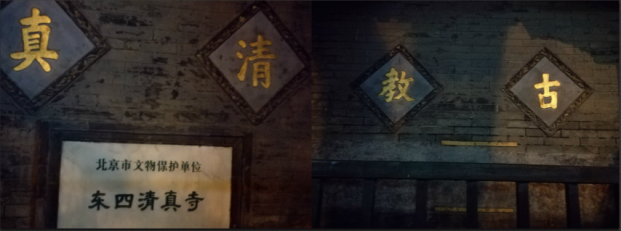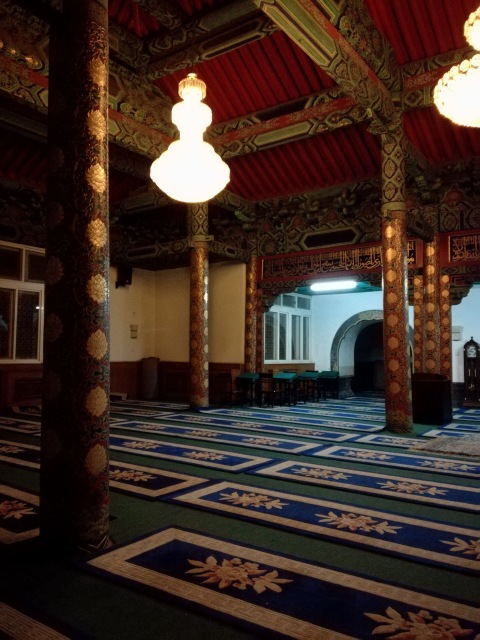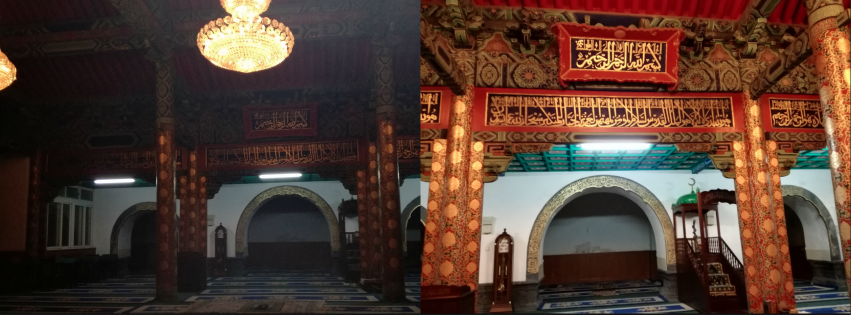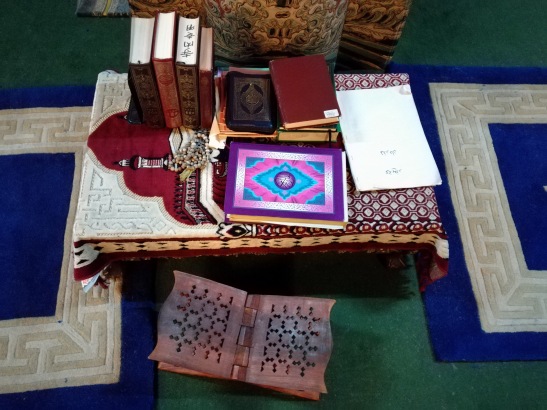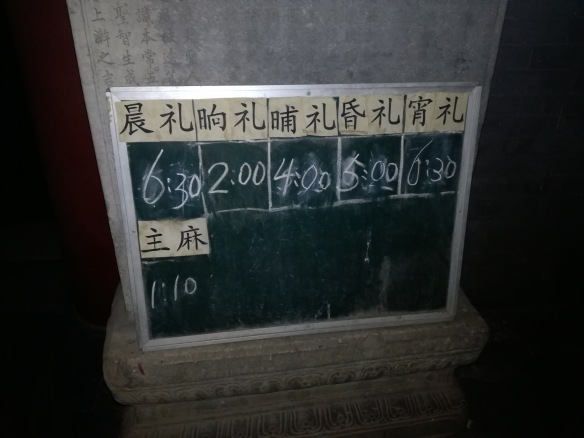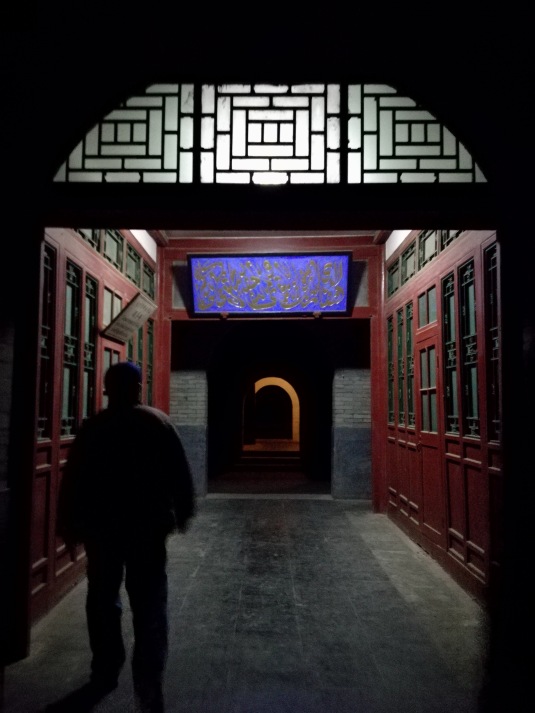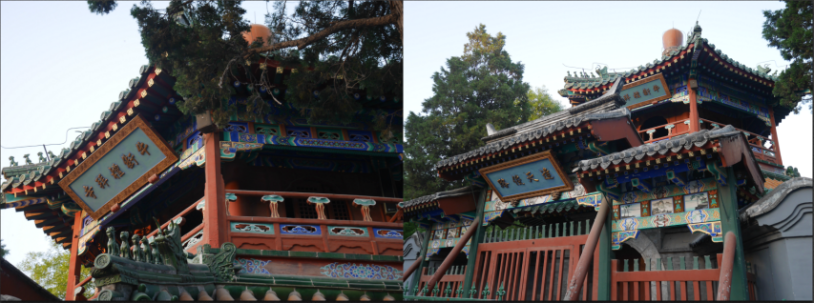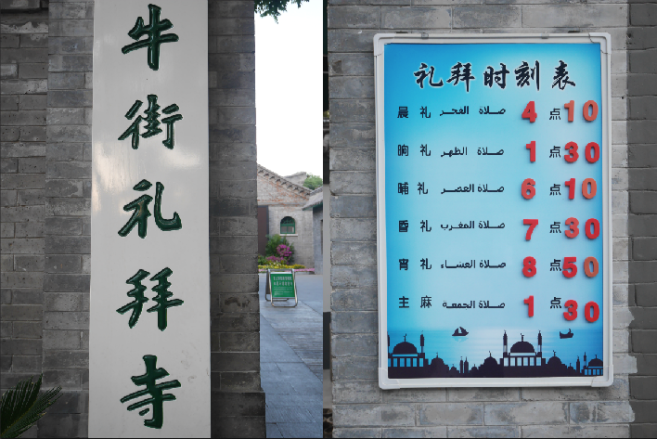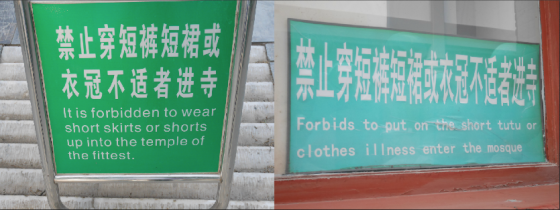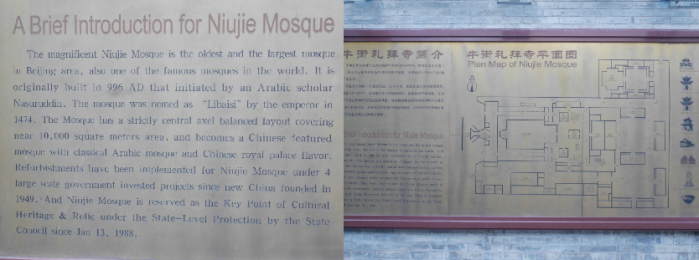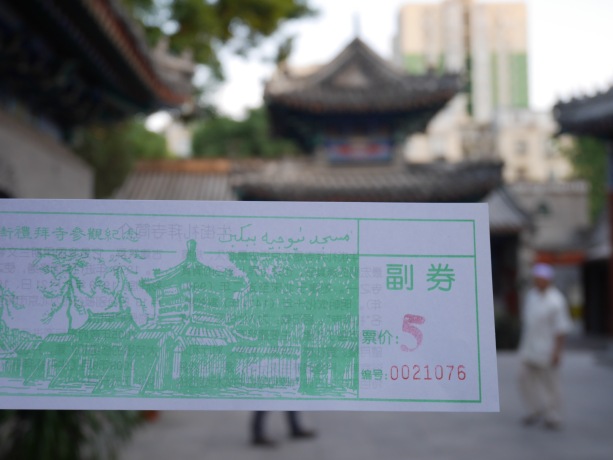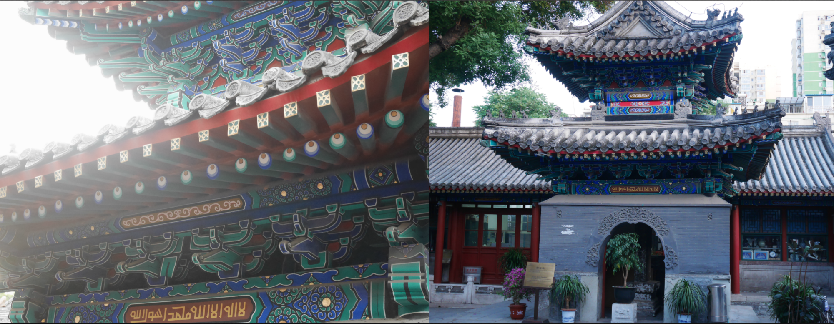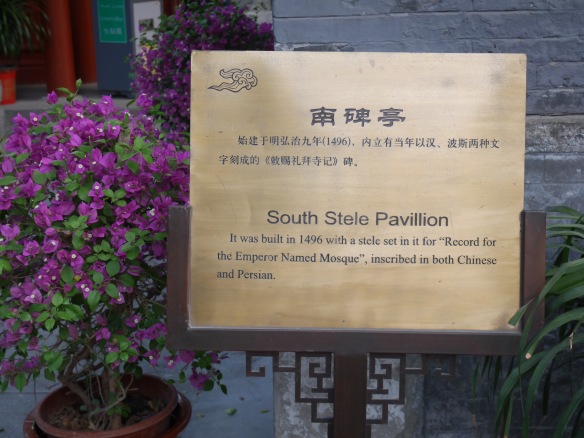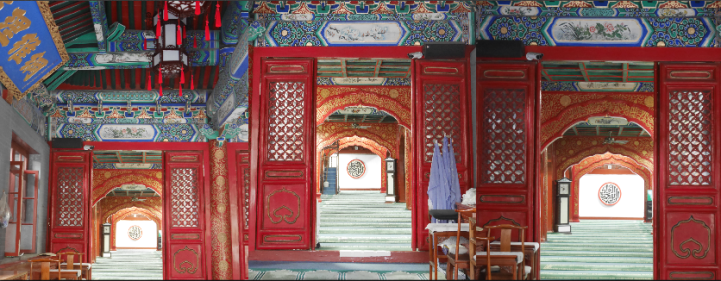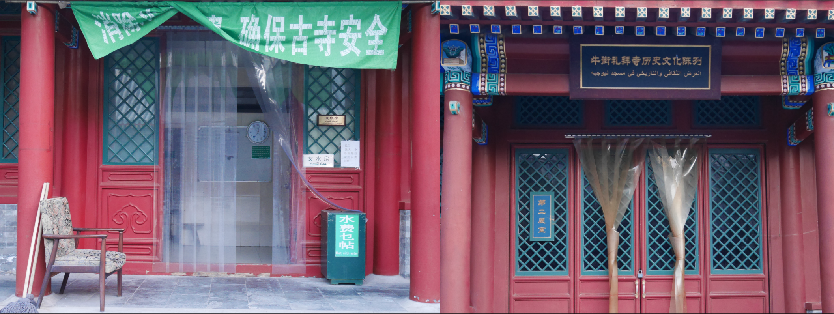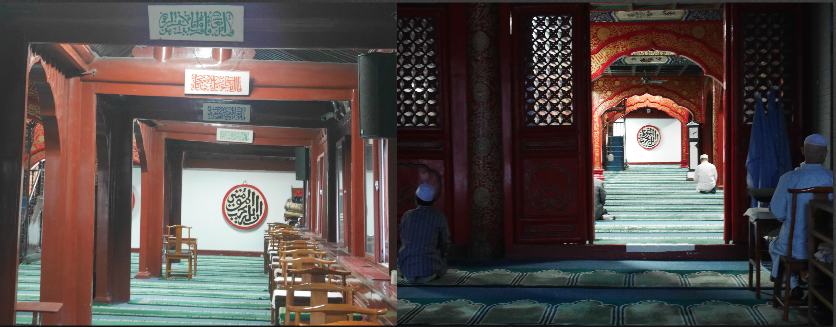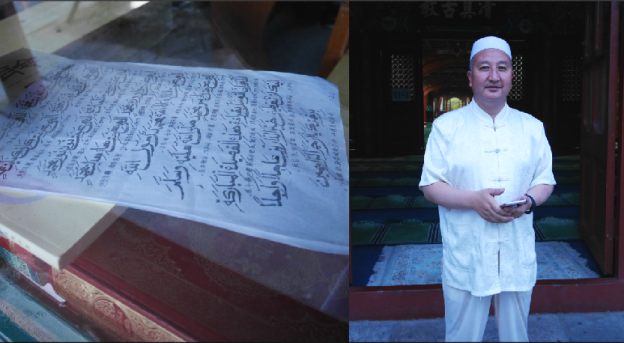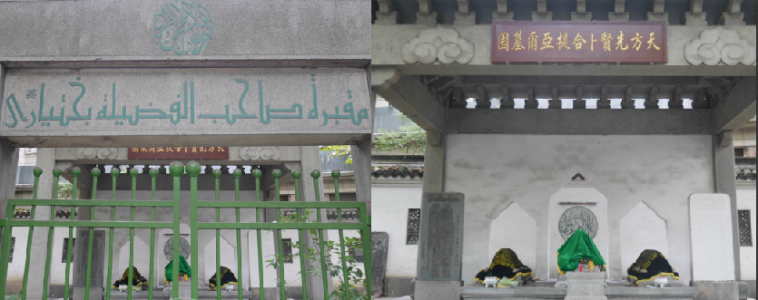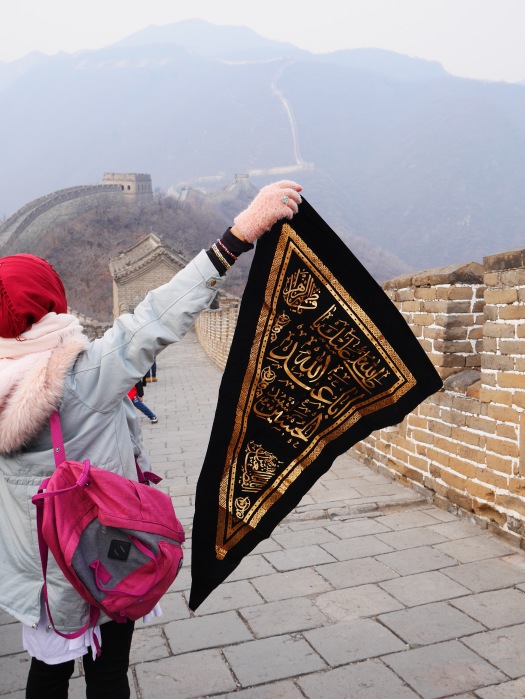
A memorial gravesite I came across when visiting Hangzhou for a group of Muslim workers who died in the province.
Are you Malaysian? Neither am I! Who’d have guessed it? Anyone but China it seems.
Assalamu’alaikum, peace be on to you~ If you read my recent update you would know that I did end up leaving this post till ‘later rather then sooner’ as I’ve been a bit ill, but more so because I’m hesitant to write about a topic that I have such precise standards for. This shall be a lengthy post as I’ve been making small notes for it in my phone since the start of my (now completed) year in China. What I’ve come to realise is that as time goes by, the experiences that influence my personal development accordingly affects my writing style. With this in mind, allow me to share with you my take on ‘The Funeral of a Muslim’.
你猜, does the title sound familiar? It’s the name of a popular Chinese novel (shown in the commencing photo) that was recommended to me by a friend and then gifted to me by another😊 The story covers themes of history and love whilst illustrating some of the hardships faced by a Chinese Muslim family living in Beijing. I haven’t gotten too far into reading the novel for myself just yet, but I do want to know the story. I chose this title as a symbolic point for sharing my experiences whilst I was living in Beijing as a Muslim foreigner. Incase you don’t already know about my heritage I guess it makes sense for that to be my starting point…
First of all I’m British. I was born in and (off term time) reside in London. I am female and a Muslim, and have thus chosen to wear a headscarf. My family come from Bangladesh in South Asia, and so although I may be on #‘team light-skin’, my skin color is brown, not ‘white’.
In Beijing I stood out quite a bit. Most people could tell that I’m not Chinese because whilst my skin has olive undertones, it’s still a few shades darker than the average Chinese foundation. My headscarf tends to be another giveaway. What’s more, my love for art is often reflected in my fashion style, and thus could cause an additional moment of staring. I should point out that whilst getting stared at by Chinese people and being constantly photographed both knowingly and without permission is common ground for most foreigners in China, none of this bothered me so much. I would have to say that my pet peeves are having to repeatedly repeat myself, and being incessantly asked questions. In China I got both of these a lot…combined. Perhaps this should have annoyed me instead, but I tried to observe patience in answering the same questions again and again for two reasons.
Firstly I cannot be annoyed at certain remarks or questions if they come from people who have not been informed/do not have accessible means to be informed about much beyond that which concerns their country. Therefore in answering questions about my background etc I carried out the minimum of my duty to pass on knowledge. Secondly I hoped that if more people became familiar with Muslim foreigners through me, it would lessen whatever other Muslim foreigners may have to deal with in the future when they themselves go to China.
As I just noted, foreigners in China seem to share the feeling of being treated slightly differently for looking notably ‘different’. Sometimes this works in their favor and is instead unfair to the Chinese (i.e. in some job opportunities), however most of us get our share of Chinese-people-being-racist-to-us-without-realizing-it. Of course each individual will have different experiences of the same event. However I noticed that my experience of studying in Beijing was different to my classmates in some aspects due to the contrast in our appearance. For instance on several occasions when I was with some of my Oxford classmates and a Chinese person stopped to talk to us and asked us where we were from. When everyone introduced themselves as being British, it was only me who was asked again as I was the only person of colour in the group.
You would be surprised at how many people failed to believe my nationality due to the way I look. At one point I introduced myself as British and added that my family were immigrants from Bangladesh, as someone once told me that’s how I should explain where I was born and where my parents were born (although my Grandmother was born in India). A.k.a the where I’m ‘really from’. Towards the end of the year my landlady texted to ask for the nationalities of the people living in our apartment. Ignoring how it seemed a bit suspicious I simply reminded her that we were British. She then asked me about ‘the girl in the headscarf’. Awkward😳. I told her ‘she’ was me and that I’m British too. I asked her why, and she just said that people from an ethnic minority were a group that get extra protection. I recall one Chinese person telling my that I cannot be British since I do not have white skin and blue eyes. -In other news, Wechat (Chinese advanced messenger app) has created a ‘Facepalm’ emoticon, and at moments like this I wish it were more accessible-. Further to my surprise, this experience isn’t limited to China. I was recently conducting a private tour in Oxford and was stopped by a waitress in a café who insisted on asking me where I was ‘really from’ when I said that I was British. 😶🌴
The question I was asked most about is my ethnicity and where I’m from. I’m somewhat used to people guessing where I’m from as I got it a lot whilst growing up (a classmate once thought I was from a Himalayan mountain when I was younger…). A few non-Chinese people guessed I was British because of my accent when speaking English, and an American Chinese person I once met in an elevator somehow guessed that I was British Bangladeshi. Besides those few, here’s the most memorable places everyone else thought I was from: Iran, India, Egypt, Arabia, Xinjiang, Nepal, Turkey, Morocco, Uzbekistan, Russia, and Malaysia. The list is pretty much ranked in order of frequency, with the exception of Malaysia as I got that by far the most.
There were a few times where someone would ask if I was Indian and then mishear ‘England’ for ‘India’ and go on to ask a few more times (the first syllable for both countries is almost the same in Mandarin). Some people were shocked to hear me speak Chinese as they expected Arabic. On the day of University enrollment an Egyptian student asked me in two Arabic dialects if I was Egyptian and then also in English. I remember looking up in a daze and tiredly responding in Chinese that I don’t understand until the fourth round where I managed to speak English. One time also at the start of the year a friend was very offended on my behalf for being called out as Iranian whilst the rest of the group were accepted as British. She then proceeded to angrily explain to the man that I was British too, as I thought to myself; “I get that a lot”. I appreciated my friend’s support but I wasn’t angry at the time, the most these guesses ever did was annoy me due to their repetitive nature. It’s quite interesting for people to guess where they think you’re from, but as most parts of England are becoming increasingly multicultural it’s difficult to define our country by a specific ‘look’. The Chinese people I met did not grasp this concept, so long story short: I could not be British since I’m not ‘white’.
One evening I ended up sharing dinner with a clothes seller near my home. As we were talking she held my wrist and told me that my skin is a bit darker than hers, but we’re both yellow (in terms of skin undertones). What I’ll take from what she said is that we are all the same at the core. As a whole it was a truly precious meal.💛
One of the strange things that happened last year was being tricked into attending a nationally televised singing competition on the outskirts of Beijng. [Disclaimer: no danger was involved]. It seemed like from that day onwards people began assuming I was an ethnic minority Chinese. In an audience of a few hundred I was the only person in a headscarf (nothing too strange) and I was the only non-Chinese attendee. Due to this I was photographed like a celebrity during the filming breaks. When people talked to me they thought I was from Xinjiang as I was speaking Chinese and not a foreign language, and since I was wearing a religious headpiece they assumed I was part of an ethnic minority. People have explained to me that whilst there are small groups of Muslims in big cities like Beijing, it is in places like Xi’an and Xinjiang where Muslims blossom in number. Sometimes I got the impression that being from a major city in China and being Muslim was mutually exclusive. For instance the conversation with my landlady gave me the insight that some Chinese people equate being Muslim as being part of an ethnic minority. Fortunately I did visit two mosques in Beijing (the capital of China) and to me the most impressive thing about them was the fusion of Persian and Chinese architecture. I created a separate post to share photos of those mosques, click here to see them. A lot of the female Muslims in cities like Beijing either do not wear a headscarf or tend to style it as a type of turban. Most halal restaurants in China with Muslim staff have female waitresses wearing a headscarf and male waiters wearing a cap (known by some as a ‘toki’ or ‘topi’).
One of my most frequently asked questions (following the classic ‘where are you from?’) is why do I wear a headscarf. Just like the taxi driver I mentioned in a recent post, some people have even asked me if men have to wear a headscarf as well as women. The answer is no. In Islam wearing a headscarf only applies to women, however the grander concept of observing hijab applies to all genders. A headscarf is a piece of cloth that is used by women to cover their hair, neck and chest. An extension of the headscarf is for women (and men) to dress modestly, i.e. cover their figure. The simple reason is to prevent lustful behavior. Some people refer to the headscarf as a hijab; but to avoid confusion I only refer to the hijab as the spiritual concept of being aware of and accordingly controlling one’s actions and thoughts to prevent lustful actions. In sum, although a headscarf is limited to women, dressing modestly as well as the wider concept of the hijab does apply to all genders.
On a shopping trip to Xicheng, I was ushered into a shop by a seller who saw me pass by. I entered as I remembered seeing something cute as I walked past the first time. After a moment the lady began to talk to me and then sat me down and continued to converse. This progressed into sitting with all three store workers as they enthusiastically tried to get to know me. The first lady who was a bit elderly spent a while telling me to get married, and me telling her that I feel a bit young for that😅. We bonded over my preference for Huawei over Iphone (the only way is Huawei🙌🏽) and eventually she felt comfortable enough to ask about my headscarf. She told me that she doesn’t like Muslims because she ‘sees them hide bombs in their clothing on the news’. I explained to them that terrorists do not practice Islam and we should not generalize such things. She said that I couldn’t be a terrorist since I wasn’t wearing a black scarf. That day I was wearing a floral pink scarf, quite standard for me, but I know that a lot of women like to wear black for whatever reason. I save black for certain occasions, but everyone is free to do as they please. Unfortunately I have received a similar remark from a Professor at Oxford in the past. Worse yet, my classmates can probably guess whom I’m referring to.
My headscarf often sparked curiosity. A teacher of mine even asked me to put one on her one time as she thought they look pretty. On the flip side, my headscarf has also gotten me denied several job opportunities. I wouldn’t say this is because of prejudice alone; perhaps it’s also down to misunderstanding. I know I said earlier that being a foreigner sometimes works in ones favour for jobs, but I realized that’s mostly true for native English speakers with white skin. On one occasion I came across a role for participating in a TV show for China’s predominant state broadcaster; CCTV. After confirming some details with the organizer I was asked about my religion and whether it would be possible to take off my scarf for the recording. I said no. The organizer explained that hats are not permitted during filming, and I too explained how my headscarf is not a hat. I think she understood my logic but was cautious to relay it to her boss, so we said ‘next time’ instead. Another more complicated opportunity was to be an extra in an advert supposedly for the American makeup brand ‘Urban Decay’. This time I was quite blatantly denied the job because of my scarf. I was later told that the filming involved extras sitting in a dimly lit set drinking shots of alcohol, so it worked out for the best that I was not involved. However what bothered me most with that incident was the lack of professionalism of the liaison involved. A more positive experience was when I did someone a favour by being filmed for a promotional video for a national bank. I was asked about my religion beforehand but this time it was because the workers wanted to be respectful.
The top question from my friends and family was about what I was eating in China. I’m pretty much a Pescatarian at Oxford anyway and this mostly continued into Beijing. To the surprise of many, there are lots of halal restaurants in China, and probably more in Beijing than Oxford (even if you were to shrink Beijing’s size down to match). Peking University even had a small halal canteen (open to Muslims only at lunch due to the meat expenses, and open to everyone at dinner) as well as a halal counter at one of the big canteens. This didn’t mean that I was eating meat all the time, as I don’t do that in England either, but I enjoyed having a few more options. Every now and then I would use leftover halal meat from a takeaway as a tofu substitute when cooking (ironic huh), especially from the meat skewers that were in every Xinjiang restaurant (and need more of in England). I also came across two food markets with counters selling meat in Chaoyang and Sanlitun (Beijing) and did some cooking with a friend. I visited Seoul and Tokyo at the end of the year and it must be said that it is far easier following a halal diet in China than in Korea or Japan. Although ‘Halal Resteraunt Week’ (I can expand on this in another post if you like) has been running for two years now in Korea, I’ve been told that it’s still difficult to even find vegetarian food in Korea let alone halal meat. In Japan you could at least follow a pescatarian diet a little easier.
Are you wondering what halal even means? Halal refers to that which is permissible in Islam. The antonym of halal is ‘haram’. In Islam things are deemed as haram because they are harmful for the body or the mind. Halal meat refers to the way the animal was slaughtered. Proper slaughtering involves performing a short prayer before the slaughter and then killing the animal in the way that would cause it to feel the least amount of pain and produce the least amount of blood. Therefore Muslims eat halal meat because it is cleaner for the body and the mind. However not all meat is halal. Pork is haram because pigs carry out actions that make them unclean. Certain types of seafood are also considered haram because their bone structures do not class them as typical fish, but many people differ on what this list includes. Some of the seafood seen as haram by some are: squid, crab, lobster, octopus, oysters and prawns, which I know is the same for some strict Christians. For this reason I tried to be a ‘pescatarian with limits’ and avoided things like sea cucumber, but I’m guilty of trying some other seafoods. The main substance besides food that is haram is alcohol. Alcohol is haram because it harms your body and alters ones state of mind thus turning them away from God. In addition to what I have just tried to explain, I also learned about the general Chinese understanding of halal. You might learn it for yourself if you go to a restaurant in China as a Muslim and ask if there are any vegetarian options. Expect the response that there are in fact halal options as there is chicken and beef on the menu. A lot of the people I met understood halal food as being anything besides pork, which complicated ordering sometimes. Ordering vegetarian food isn’t always the safest option either as the food is often sprinkled with bits of spam meat. Spam is a fitting term here🙄. A lot of people were shocked when I explained that its more to do with the preparation of the meat than the meat itself, and one person asked me if there is a “halal milk oil”. 🤔
Last year I also spent Ramadhan in Beijing. Ramadhan is holy month in which Muslims fast by abstaining from food and drink from sunrise to sunset, as well as limiting activity that draws them away from God. I was able to find a timetable for when to start and end my fasts, but I found it more difficult than fasting in England due to the temperature being so hot (context: maximum heat in England is 30°C, at the time Beijing was around 38°C on average). Although I had a small group of Muslim friends, we didn’t meet for Iftar (the meal at which Muslims break their fast) as they lived quite far. Oxford at least has people in the Islamic Society, but in Beijing I was the only person fasting that I knew of around me. It was a new feeling. I sometimes had iftar with friends outside or by ordering takeout, other days I cooked at home. For those who insist on a substantial suhoor (meal before sunrise taken to fuel the next day’s fast), there are a few steamed bun shops that open at early hours, as well as street venders selling food from late at night till early in the morning.
I would like to reassure you that whilst my tone may have come off a bit negative at times, my general outlook on my experiences in China is positive. The main reason that I created this post is similar to what I said earlier about my attitude to answering questions. Friends and family from England often asked me how I was coping in Beijing with being alone or finding things to eat, and now some of my answers are embedded in this post. In that sense I wanted to share my experiences with other people who may ponder on similar questions. Since coming to England, there’s a lot I miss about Beijing, and actually I was never seriously homesick whilst I was staying there last year. On another note, I will soon be uploading a similar post written in Chinese, so if you can read some Chinese then I invite you to wait for that. The topic remains the same but the content will differ slightly due to the different purpose and audience. I do hope this has been informative to you and if you want me to expand on any points then please let me know~
The title I chose for this post is powerful to me because it’s symbolic in a few personal and public senses. Although my family was worried about me being one of the few Muslims in a place where religious views are suppressed, I felt safer in the East than West. Throughout the year I came across an increased number of hate crimes against Muslims; some of which were scarily close to home. Therefore the times we are in do feel like a mass ‘funeral of Muslims’ due to the rise in Islamophobia across the globe, but we should not surrender to fear. It is not my intention to feed negativity, as there are more important things that need attention right now than the racism and ignorance I faced at times last year. I pray that we can all live in peace rather than pray for people to rest in peace once it is already too late.
If you overcome mental blocks in order to write a post that was envisioned under a year ago, good luck 世界。
(此致敬礼) 欣妍 – اَلسَّلامُ عَلَيْكُم – From Xinyan.
*I know that some of my readers and friends really are Malaysian, so my commencing statement does not apply to you, but I’m sure you understand why I started in this way~
** It took me 4yrs to realise the irony that I wrote this on 9/11, and so today (9.11.21) I recorded an audio ver of this post with small commentary
**Eid e Ghadeer Mubarak. 💚
